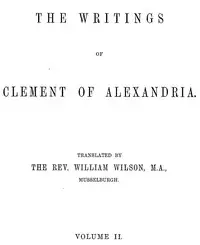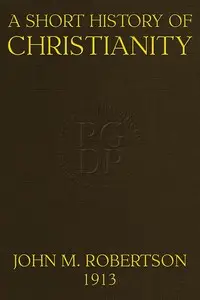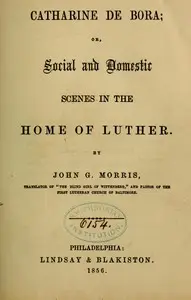"The Writings of Clement of Alexandria, Vol. 2" by Saint Clement of Alexandria is a theological treatise written in the late 19th century. This volume continues the exploration of early Christian thought and philosophy, delving into the nature of faith, knowledge, and the virtues that align with Christian doctrine. It seeks to argue against pagan philosophies and illustrate how elements of these beliefs could trace back to earlier sacred texts, emphasizing the interconnectedness of faith and knowledge. The opening of the volume begins with an introductory chapter that establishes the central theme: the Greeks, seen as intellectual pioneers, have, according to the author, imitated and distorted elements from earlier sacred traditions. Clement asserts that true knowledge comes only through faith, setting up the argument that faith is foundational to understanding God and truth. He introduces various philosophical concepts, critiques differing beliefs, and emphasizes how detrimental it is to overlook scriptural insights for pagan understandings. This initial exposition paves the way for the exploration of the essence of faith, its necessity for true knowledge, and its role in cultivating virtues that reflect both divine and human ethics. The argument serves not just to defend Christian beliefs but also aims to lead potential detractors toward a deeper understanding of the Christian faith. (This is an automatically generated summary.)

The writings of Clement of Alexandria, Vol. 2 (of 2)
By of Alexandria Clement
"The Writings of Clement of Alexandria, Vol. 2" by Saint Clement of Alexandria is a theological treatise written in the late 19th century. This volume...
Titus Flavius Clemens, also known as Clement of Alexandria, was a Christian theologian and philosopher who taught at the Catechetical School of Alexandria. Among his pupils were Origen and Alexander of Jerusalem. A convert to Christianity, he was an educated man who was familiar with classical Greek philosophy and literature. As his three major works demonstrate, Clement was influenced by Hellenistic philosophy to a greater extent than any other Christian thinker of his time, and in particular, by Plato and the Stoics. His secret works, which exist only in fragments, suggest that he was familiar with pre-Christian Jewish esotericism and Gnosticism as well. In one of his works he argued that Greek philosophy had its origin among non-Greeks, claiming that both Plato and Pythagoras were taught by Egyptian scholars.














